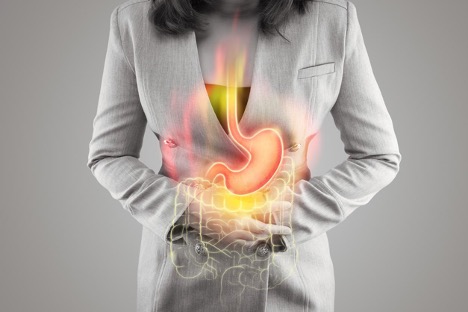
The week of November 23rd to November 29th is Gastroesophageal Reflux Disease (GERD) Awareness Week. GERD happens when food and liquid from the stomach move back up into the esophagus, causing irritation of the lining of the esophagus. The symptoms of GERD may include:
These symptoms are usually worse at night; increased by bending, stooping, lying down or eating and temporarily relieved by antacids.
If you have chronic acid reflux or frequent heartburn, you are at risk for a condition called Barrett’s esophagus. Barrett’s esophagus is a change in the lining of the esophagus. You are more likely to have this condition if you have had GERD for a long time. Left untreated, it can lead to cancer of the esophagus. About 3.3 million American adults have Barrett’s. There are no clear symptoms that mean someone has Barrett’s Esophagus. In fact, when developing Barrett’s Esophagus, some may think that they are getting better because symptoms of GERD sometimes get better or even disappear. This could lead to a false sense of security. But even without symptoms they can feel, people with Barrett’s Esophagus still have a much greater risk of developing esophageal cancer.
Barrett’s Esophagus may never go away, even with medication or change in diet. That is why your gastroenterologist will check these patients on a regular basis to make sure the condition isn’t getting worse. It is important to talk with your doctor when symptoms of GERD begin or if they have gone away. Your doctor may perform an upper endoscopy of EGD procedure to help diagnosis Barrett’s Esophagus and/or monitor changes to the lining of the esophagus.
FOR MORE INFORMATION, PLEASE VISIT : https://treatbarretts.com/
For Your Visit
Wantagh North
P: 516-785-6800
F: 516-785-2121
1488 Wantagh Avenue
Wantagh, NY 11793
Mon – Thurs: 8:30AM – 5:00PM
Fri: 8:30AM- 4:30PM
Sat & Sun: Closed
Pomona
P: 845-354-3700
974 Route 45,
Suite 2000
Pomona, NY 10970
Mon – Fri: 8:00AM – 5:00PM
Sat & Sun: Closed
© All Rights Reserved